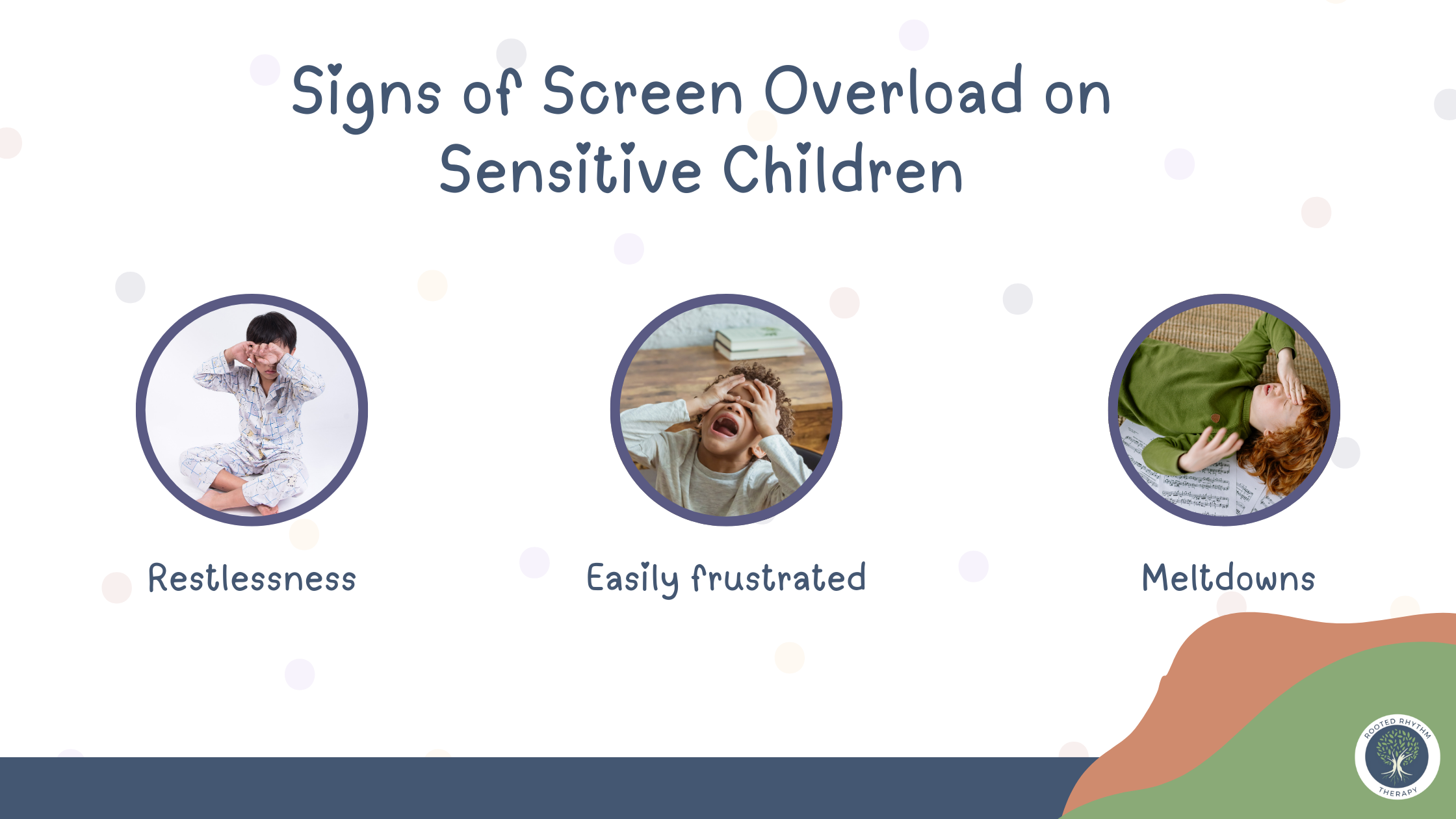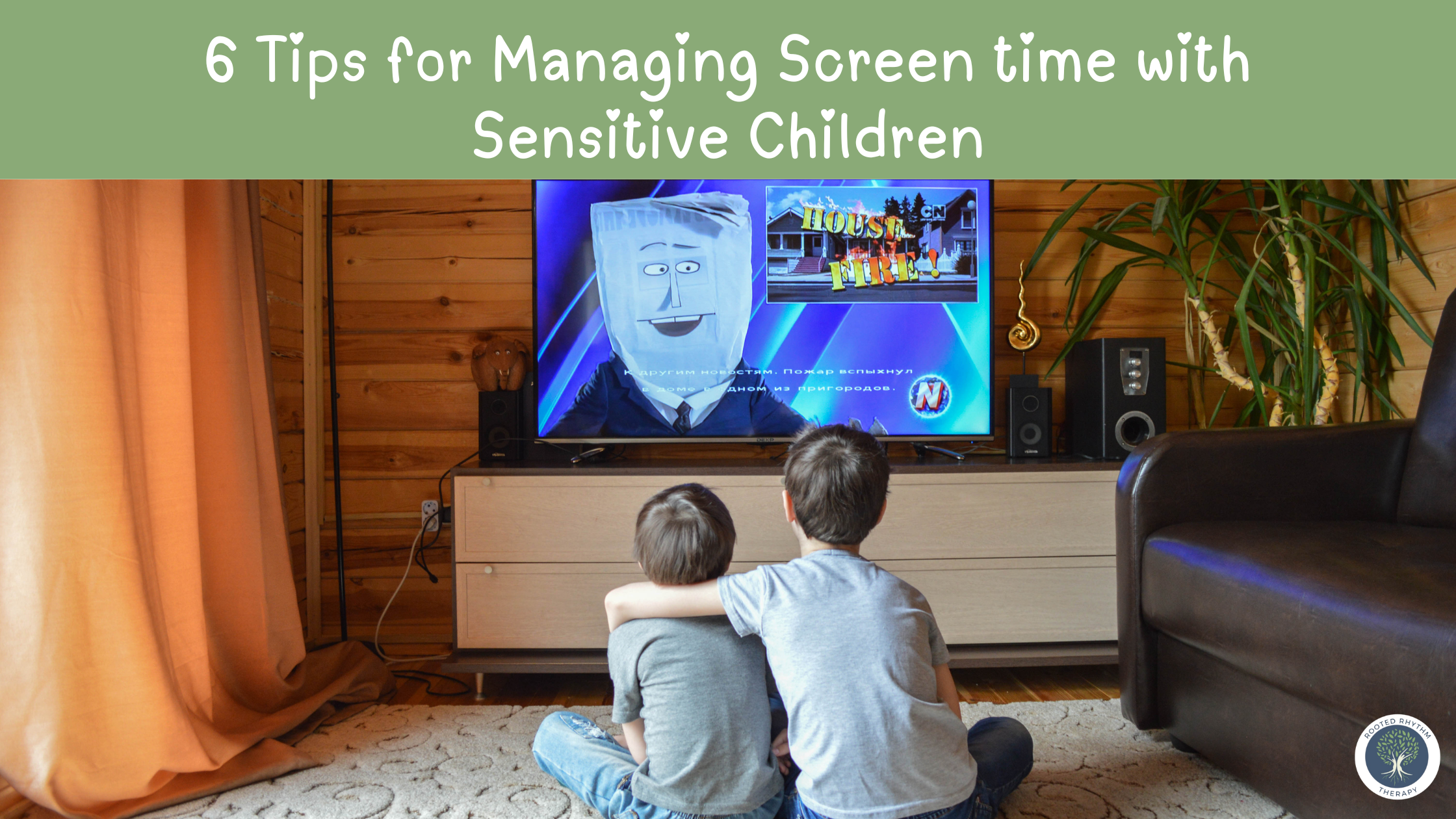Screen Time Effects on Sensitive Children: What Parents WithSensitive Kids Need to Know
The presence of screen time in the present world is quite literally undeniable. Gadgets, screens, and apps are all woven into the fabric of everyday life, encompassing school activities as well as family and social gatherings. Screen time is not only a matter of convenience or leisure; it is also essential today! To connect with family or a parent who is travelling, and to just experience the world beyond where you are. So, saying a complete NO to screen time isn’t the best solution. Having said that, while screen time is a need, there can be screen time effects on sensitive children if not managed consciously. You’re not alone if screen time worries you, especially with sensitive kids who feel more deeply. Keep reading for expert-backed guidelines and non-shaming tips for creating a balance in screen time for sensitive children.
What are the Screen Time Effects on Sensitive Children?
Highly sensitive children have heightened sensory awareness, which means that screen time doesn’t just entertain them; it deeply stimulates them. Bright, flashing visuals, loud sounds, and fast-paced scenes can overwhelm their nervous system and drain their energy. Screen time effects on sensitive children can vary, but most effects are primarily derived from their empathy and ability to deeply process information that might not possess the same depth for other individuals. A fighting sequence in a movie can betoll-taking, the disappearance of a character may arouse worry, and violent games can provoke sadness. Therefore, it is crucial for parents to understand that the duration of screen time alone is not what matters; it’s the intensity and the content that is being consumed that may require extra surveillance.
Impact on Emotional Regulation in Sensitive Kids
Research shows that over four hours of screen time in children aged 2-5 can lead to emotional lability, and these effects may be more pronounced in highly sensitive children. While gadgets are often given to children as a means of ‘winding down’ & ‘cooling off’, in highly sensitive children, it can do the opposite. Repeated, overstimulating visuals leave them agitated and restless. It might also cause mood swings, induce anxiety, and meltdowns, taking them a while to return to feeling stable after even a small amount of screen time. It also dulls their natural emotional cues and weakens their ability to self-soothe. Which means that they are unable to identify emotions and therefore can’t move through complex situations on their own.
Screen Time Effects on Sensitive Children and Their Sleep
Our screens emit a blue light that suppresses melatonin, a hormone that sends out a signal that it’s time to sleep, making it harder for the body to wind down naturally. Moreover, screen time effects on sensitive children can be more pronounced when it comes to sleep habits. Highly sensitive children require a slow, gentle transition from day to night for a steady routine, and any disruptions due to screen time can make them more alert and anxious at bedtime. As a result, highly sensitive children may not be able to calm down before bed. Making it a challenging process for any parent, and subsequently resulting in night waking and early-morning moodiness.
Recognizing the Signs of Screen Overload in a Highly Sensitive Child
As a parent, at times it can be difficult to comprehend the different situations that your child might be in. Highly sensitive kids are often thought of as being difficult, while in reality, it is their system that is struggling to adjust. This is one of the prominent screen time effects on children. Due to screen overload, highly sensitive children may become easily frustrated and short-tempered, while abrupt screen time may also lead to meltdowns and defiance. In the longer run, children may look emotionally withdrawn, disconnected, and ‘zoned out.’ This largely happens as a coping mechanism to overstimulation. If during mealtimes and bedtime your child seems restless, it could very well indicate that their nervous system has been overstimulated. Empathizing with your child is one of the qualities of a good parent! Read more about it here.
Screen Time Guidelines: Minimizing Screen Time Effects on Sensitive Children
The American Academy of Pediatrics has laid down a rough outline of acceptable screen times for different age groups that can minimize screen time effects on sensitive children. Until 18 months of age, screen time should be limited to video chatting, for example, with a parent who’s traveling. Between 18 and 24 months of age, children can be permitted to watch educational programmes with a caregiver. For children aged 2-5, screen time should be no more than 1 hour per day and a total of 3 hours on weekends. However, for children who are 6 years of age and older, screen time limitation can be taught through active participation of the child themselves; since they are now at an age that permits them to make decisions, and forceful limitation of screen time can do moreharm than good. Use of gadgets must also be generally avoided during any social activity, such as meal times and family gatherings, which are important regulators of the nervous system, especially in a highly sensitive kid.
Screen Time as a Tool, Not a Villain
In today’s world, it’s easy for parents to feel guilt or shame when handing out a device to their children. Their child’s screen use might make them feel irresponsible, but the truth is, screen time in itself isn’t inherently harmful. It only becomes an issue when it is not regulated well. It is important to understand that screen time can not be substituted for real-world experiences, human connection, and learning. Though it can be used to augment all these skills if used properly. For example, as a parent of a highly sensitive child, you might want to ask your child if they’d be interested in watching something resourceful with you. Always remember, a screen is just a tool. How you choose to use it subsequently dictates its effects.
6 Practical Tips for Managing Screen Time with Sensitive Kids
1. Modeling Mindful Habits
More often than not, children learn through practical examples. Highly sensitive kids are more cognisant of their surroundings and tend to analyze every tiny bit of their interaction. Thus, chances are that if you are able to enhance your mindful screen use, your child will too. Also, try to neutralize your relationship with screens. Sensitive kids pick up on topics that we feel charged around, and in the case of screens, they may actually crave them more if they know there is something that has “negative” charge or should be seen as taboo. Try not to set loving limits and boundaries, but not make a huge deal about it. It’s sort of like not making a huge deal of dessert or sweet treats, so that kids don’t have intense cravings for something they think will be off limits most of the time.
2. Connect and Communicate
Highly sensitive kids may have a hard time communicating their feelings, especially when they are overwhelmed with screens. And while you can learn the signs of screen time effects on sensitive children and patterns of screen overload in your child, it helps to have a healthy conversation about how they’re feeling. For example, you can ask your child ‘How does this show make you feel?,’ ‘Do any parts of that game make you feel nervous or excited?’ or ‘Would you like a quiet break after this?.’ Such non-judgmental questions will help build trust and emotional awareness in your child and equip them to deal with their emotions in a better way.
3. Create a Screen-Smart Environment at Home
Screen time can be effectively limited when done in a community setting. It helps a sensitive child feel a sense of belonging and makes it easier for them to do a lot of things. For example, creating screen-free spaces in your home, such as the dining room, where everyone is prohibited from using their phones. Or engaging in fun craft activities with the family as a sensory-friendly alternative to screens.
4. Co-viewing as Connection
A set amount of screen time must be permitted, as we now know that screen time isn’t all bad. Sharing screen time experiences with your child can strengthen your bond and encourage healthy screen use. For example, watching an informative documentary or an educational program. Enjoying a movie to unwind, all while being beside your child, so that they know that they aren’t alone. So, the next time you want to spend some quality time with your children, you can freely co-view without worrying about the screen time effects on Sensitive Children.
5. Build Gentle Transitions
It’s easy to get stuck in existential overwhelm about the impact of screen times on our kiddos. The reality is that screen time isn’t going anywhere. Embracing the creative potentials for learning and growth that screen time can provide our children can help ease that overwhelm. See if you can shift your mindset on some of the screen time that is worrying you, and instead look at the benefit of that activity for your child. For example, this might be a controversial statement, but even Minecraft provides a super creative outlet for kids.
6. Build Gentle Transitions
No matter how much we try, there might be instances where a child may feel overstimulated even after a short and regulated period of screen time. In such cases, parents can devise activities that can help reset their child’s nervous system. These activities may differ according to need and accessibility but may largely include a walk in the park, breathing exercises, a warm bath, or just some quiet time with a parent.
When to Seek Support: If Screen Time Feels Like a Battle
Even with your best efforts to manage screen time, you may still find yourself feeling uncertain or conflicted about screen time and its effect on your sensitive child. Moreover, despite regulated screen time, your child may still feel restless and agitated. In such cases, know that you’re not alone, and reaching out for support is okay. At Rooted Rhythm, our Holistic Child Play Therapy creates a safe space for your child where they can build the emotional resilience that is needed to thrive. It also provides support sessions and practical tools to parents in dealing with the screen today. Working with professionals who understand highly sensitive children helps parents accept and learn about their child throughout this journey that may sometimes feel overwhelming.
Do you have a highly sensitive child?
We have created a course (Tuned In Parenting Course) that covers all from parenting techniques, to self-regulation, setting expectations, healthy boundaries and so much more. If you feel like starting with a sneak peak visit our Instagram page or check our mini courses: The Highly Sensitive Child and Parenting Essentials. We created these resources with care, and our hope is that they bring you clarity, support, and a sense of ease in your parenting journey.



